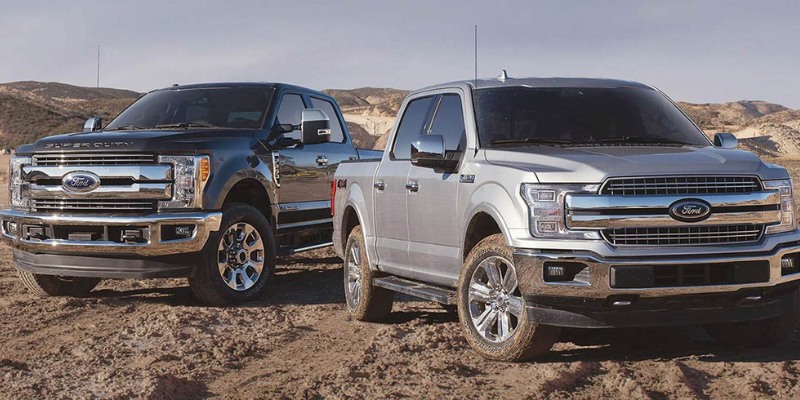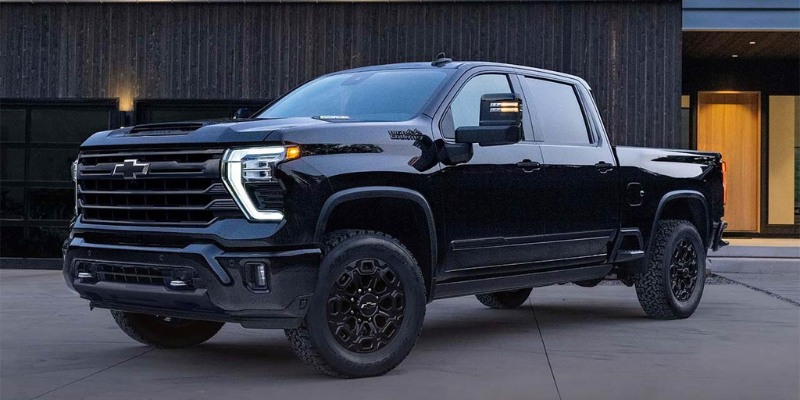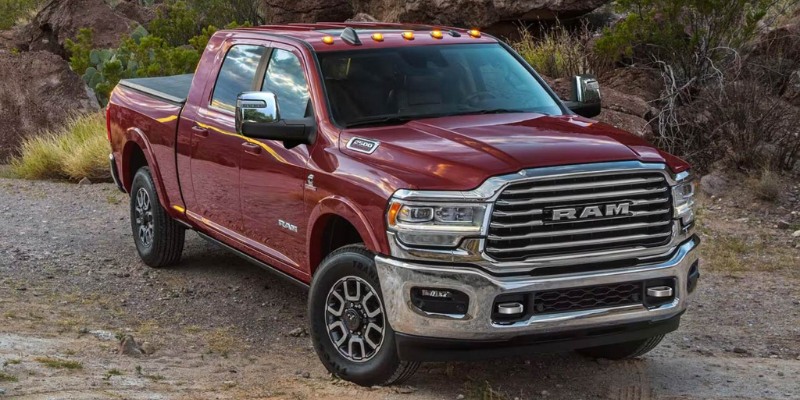General Finance
Best Used Diesel Trucks For Towing Power
It's easy to get distracted by the flash of newer trucks, but towing power isn't about fancy features; it's about capability. It's about strength, torque, reliability, and resilience. When the job is heavy, and the road is long, used diesel trucks are often the more intelligent choice.
It's easy to get distracted by the flash of newer trucks, but towing power isn't about fancy features; it's about capability. It's about strength, torque, reliability, and resilience. When the job is heavy, and the road is long, used diesel trucks are often the more intelligent choice.
Why Diesel Trucks Are Better for Towing — Especially When Buying Used
Gas engines may be quick off the line, but diesel trucks are built to handle serious weight without breaking a sweat. Their engines produce more torque at lower RPMs, which makes pulling trailers, boats, RVs, or heavy work equipment far more efficient. Plus, diesel trucks are often more durable and can last well over 300,000 miles when properly maintained. This makes buying used a wise decision if the goal is dependable towing.

However, not all used diesel trucks are created equal. Some models deliver more value and muscle than others. Let's break it down.
2015–2019 Ford Super Duty F-250 and F-350 (6.7L Power Stroke V8)
The Ford Super Duty line consistently ranks among the top diesel trucks for towing power. The 6.7L Power Stroke turbo-diesel V8 engine puts out a massive amount of torque, with 935 lb-ft on later models. It can tow over 21,000 pounds with a standard hitch and up to 35,000 pounds with a gooseneck or fifth-wheel setup, depending on the trim and year.
These trucks are everywhere for a reason. They're rugged, come with solid transmission setups, and rarely flinch under pressure. For heavy-duty hauling, used F-250s and F-350s from these years are dependable workhorses. Just ensure the maintenance history is thorough. Neglected trucks are ticking time bombs.
2013–2018 Ram 2500 and 3500 (6.7L Cummins Turbo Diesel I6)
Ram's partnership with Cummins produced one of the most respected engines in the towing world. The 6.7L Cummins inline-six is renowned for its exceptional longevity and impressive pulling strength. On properly equipped Ram 3500 models, it delivers over 930 lb-ft of torque and can tow up to 31,000 pounds with a fifth-wheel hitch.
Ram diesel trucks from these years also tend to have lower resale values compared to Ford or GM, which can be a plus for buyers looking for towing performance on a tighter budget. Look for models with the Aisin transmission—it handles heavy towing better than the standard 68RFE automatic.
This truck doesn’t just tow. It hauls without groaning, holds up under tough loads, and keeps going when others quit. But don’t expect it to baby you with soft rides or fancy cabins. It's built for work first.
2011–2016 Chevrolet Silverado 2500HD and 3500HD (6.6L Duramax V8)
Chevy's Duramax-powered HD trucks hold their own in the diesel scene. The 6.6L Duramax V8, paired with the Allison transmission, gives a smooth and efficient towing experience. These trucks are rated for up to 23,200 pounds of towing capacity, depending on the configuration.
Duramax engines have a strong reputation for reliability. The 2011 refresh introduced significant improvements, including a more efficient fuel system, stronger blocks, and enhanced turbochargers. Drivers appreciate how these trucks handle even with a heavy load attached—less sway, tighter control, and minimal strain.

For those who want a powerful tow vehicle with a slightly more refined cabin and ride quality, this generation of Silverado HD trucks offers a nice balance.
2008–2010 Ford F-250 and F-350 Super Duty (6.4L Power Stroke V8)
These models get overlooked because the 6.4L Power Stroke isn't as clean-burning or fuel-efficient as newer engines. But if the priority is raw power and a lower upfront cost, these trucks can deliver. Towing capacity is solid, with a maximum of 16,000 pounds using a conventional hitch and up to 24,500 pounds with a fifth-wheel hitch.
The 6.4L diesel was Ford's transition engine between the troubled 6.0L and the more refined 6.7L. It's not perfect, but it's strong, and many owners have achieved impressive mileage with proper maintenance and attention to the DPF system.
This is for those who aren’t scared to roll up their sleeves. It won’t win beauty contests, but when it’s time to move serious weight, it’s up for the challenge.
What to Check Before Buying
Buying used isn’t just about the price tag. If the truck’s history is shady or the engine has been abused, it doesn’t matter how great the model is on paper. Some things to pay attention to:
Service records: Diesel trucks are rigid, but skipped maintenance—especially oil changes, filter replacements, and fuel system care—shortens their life.
Transmission condition: Towing strains the transmission. Listen for rough shifts, slipping, or overheating.
Excessive modifications, such as tuners, deletes, or lifts, can damage reliability unless performed professionally.
Rust and frame issues: Salted roads eat trucks alive. Check undercarriage and suspension components closely.
Mileage vs. usage: A 250,000-mile highway truck might be a safer bet than a 120,000-mile truck that is towed beyond its limit every weekend.
Diesel Trucks and Towing Laws
Towing is about more than power—it's also about legality. Every state has different regulations for weight distribution, braking systems, and licensing when pulling larger trailers. Failing to address these can lead to accidents, fines, or denied insurance claims.
Before pairing a used diesel truck with a heavy trailer, it’s smart to:
Verify Gross Vehicle Weight Rating (GVWR) and Gross Combined Weight Rating (GCWR).
Match trailer weights with proper hitches and braking systems.
Stay within payload capacity, not just towing capacity. The payload includes passengers, cargo, and tongue weight.

Why Buying Used Still Makes Sense
New diesel trucks are expensive, and depreciation takes a significant toll in the first few years. A used diesel truck that's five to seven years old can save thousands while still delivering strong performance. With diesel engines renowned for their durability, a well-maintained truck can last another decade.
Even in a market that often favours newer technology and cleaner emissions, used diesel trucks remain some of the best options for hauling weight over long distances. Whether it's for work, recreation, or both, they've earned their reputation where it matters most—on the road, under pressure, doing the job no one else wants.
Trending









